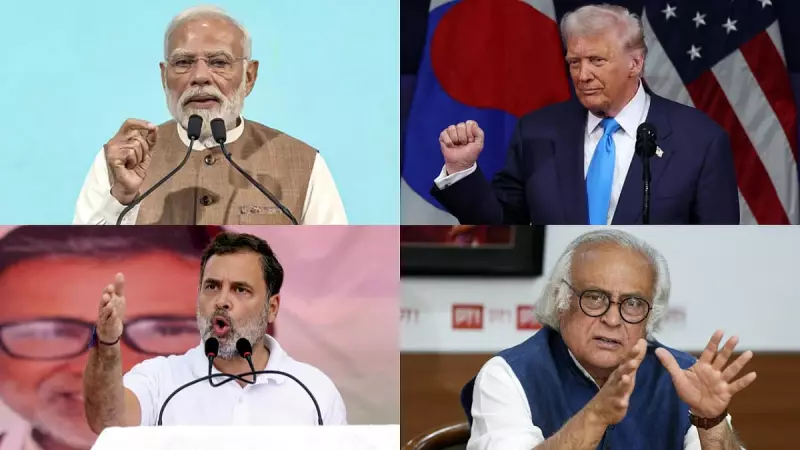
The Indian political landscape witnessed fresh tensions as the Congress party launched a direct challenge to Prime Minister Narendra Modi, urging him to address former US President Donald Trump's repeated claims about being asked to mediate in the Kashmir issue.
Political Confrontation Escalates
Senior Congress leader Jairam Ramesh spearheaded the attack, questioning the Prime Minister's silence on what he termed "Trump's consistent narrative" regarding Kashmir mediation. The opposition party demanded that the government break its silence and provide clarity on the diplomatic position concerning the sensitive territorial matter.
Historical Context of Claims
Donald Trump has repeatedly asserted, both during his presidency and after, that Prime Minister Modi had sought his intervention as a peacemaker in the longstanding Kashmir dispute between India and Pakistan. These claims have resurfaced multiple times in various international forums, creating diplomatic ripples.
India's Traditional Stance
New Delhi has maintained a consistent position for decades that Kashmir is a bilateral issue between India and Pakistan, rejecting any third-party involvement. This principle has been a cornerstone of India's foreign policy across different governments.
Congress's Three-Pronged Attack
- Diplomatic Accountability: The party questioned why the Prime Minister hasn't directly countered Trump's assertions
- National Interest: Emphasized the need to protect India's sovereign position on Kashmir
- Political Courage: Challenged the government to show strength in defending India's diplomatic stance
Broader Implications
The controversy touches upon several critical aspects of India's foreign policy and national security. The Congress party's intervention highlights the ongoing political debate about how India should handle international perceptions and statements concerning its internal matters.
As the diplomatic waters remain unsettled, the opposition continues to press for official clarification, making this not just a political confrontation but a matter of national diplomatic consistency.






